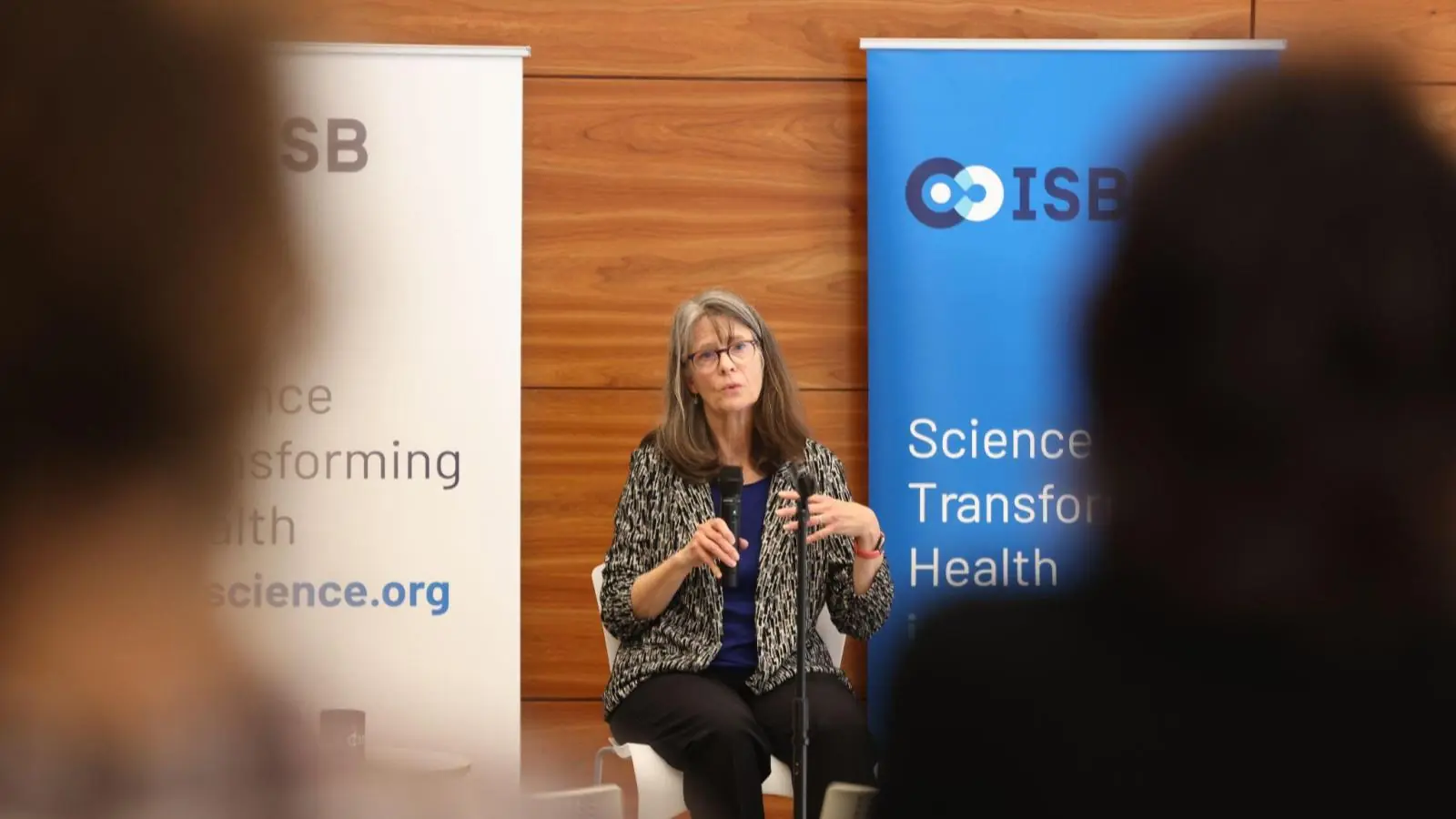Media Coverage
Filter
-
- All Categories
- Brain Health
- Cancers
- Cell Dynamics
- Computational Biology
- COVID-19
- Disease
- Environment
- Experimental
- Healthspan
- Healthy Aging
- Immune System
- Infectious Disease
- Microbiome
- Nobel Prize
- Pregnancy Health
- Proteomics
- Scientific Wellness
Sort
-
- Default
- A-Z
- Z-A
- Newest
- Oldest
Forbes 250: America's Greatest Innovators
Lee Hood was ranked #41 on Forbes’ “250 America’s Greatest Innovators” list, published in celebration of America’s 250th anniversary. The list highlights individuals whose scientific leadership, creativity, and impact are shaping the future of science and innovation — and recognizes Hood’s lasting contributions to research and discovery.
Washington Research Foundation announces 2026 cohort of WRF Postdoctoral Fellows
ISB Postdoc Nathaniel (Nate) Ritz, Ph.D., was named a 2026 WRF Postdoctoral Fellow, receiving three years of support from the Washington Research Foundation to advance technology that decodes gut microbiota-host chemical communication. The award is part of WRF’s statewide program backing early-career scientists pursuing high-impact research.
AI for impact: AWS awards Imagine Grants to pioneering nonprofits across three continents
The Institute for Systems Biology (ISB) has been awarded a 2025 AWS Imagine Grant — funding that will accelerate the development of its generative-AI platform Tarpon, which creates “digital fingerprints” of T-cell receptors, enabling faster discovery and design of targeted immunotherapies.
Molecular biologist Mary Brunkow is the Nobel Prize winner next door
This feature traces the remarkable arc of Mary Brunkow — from undergraduate at the University of Washington to 2025 Nobel Laureate — spotlighting her foundational discovery of the gene FOXP3, and how that breakthrough unlocked a new understanding of immune-system self-tolerance. The story also reflects on the years of basic research, the long-standing impact on immunology, and how Brunkow’s journey connects back to her roots in Seattle’s scientific community.
Your Poop Schedule Says a Lot About Your Overall Health, Study Shows
ISB-led research from the Gibbons Lab shows that how often people have bowel movements is linked to overall health and disease risk. The study suggests an optimal “Goldilocks” range of once or twice daily, with deviations associated with broader physiological changes.
Dr. Sean Gibbons: Toilet Visits, How Often And How Long
ISB’s Dr. Sean Gibbons explores the science of bowel habits and the microbiome, explaining how frequency, timing, and stool form reflect overall health. The conversation connects everyday experiences with cutting-edge research on digestion, diet, and the trillions of microbes that shape human well-being.
Dr. Lee Hood on Systems Biology, P4 Medicine, and the Future of Health
Dr. Lee Hood joined podcast host Jeremy Koenig to discuss the evolution of medicine from reactive care to P4 health. He explored eight paradigm shifts that have transformed biology and highlighted how systems thinking, big data, and AI are reshaping wellness and personalized care.
A conversation with UW alum and Nobel Prize winner Mary Brunkow
University of Washington alum Mary Brunkow has been awarded the 2025 Nobel Prize in Physiology or Medicine for pioneering research into how the immune system is prevented from attacking the body’s own tissues – work that has profound implications for autoimmune disease, cancer therapies, and transplant medicine.

Nobel Laureate Dr. Mary Brunkow speaks at a press conference held at ISB on October 7, 2025. (Photo by Alex Garland for ISB)
ISB’s 2025 Nobel Prize Coverage
ISB’s Dr. Mary Brunkow received the 2025 Nobel Prize in Physiology or Medicine for transformative discoveries in immune tolerance.
Visit our Nobel Prize hub page for stories, photos, reactions celebrating this historic achievement, and more.